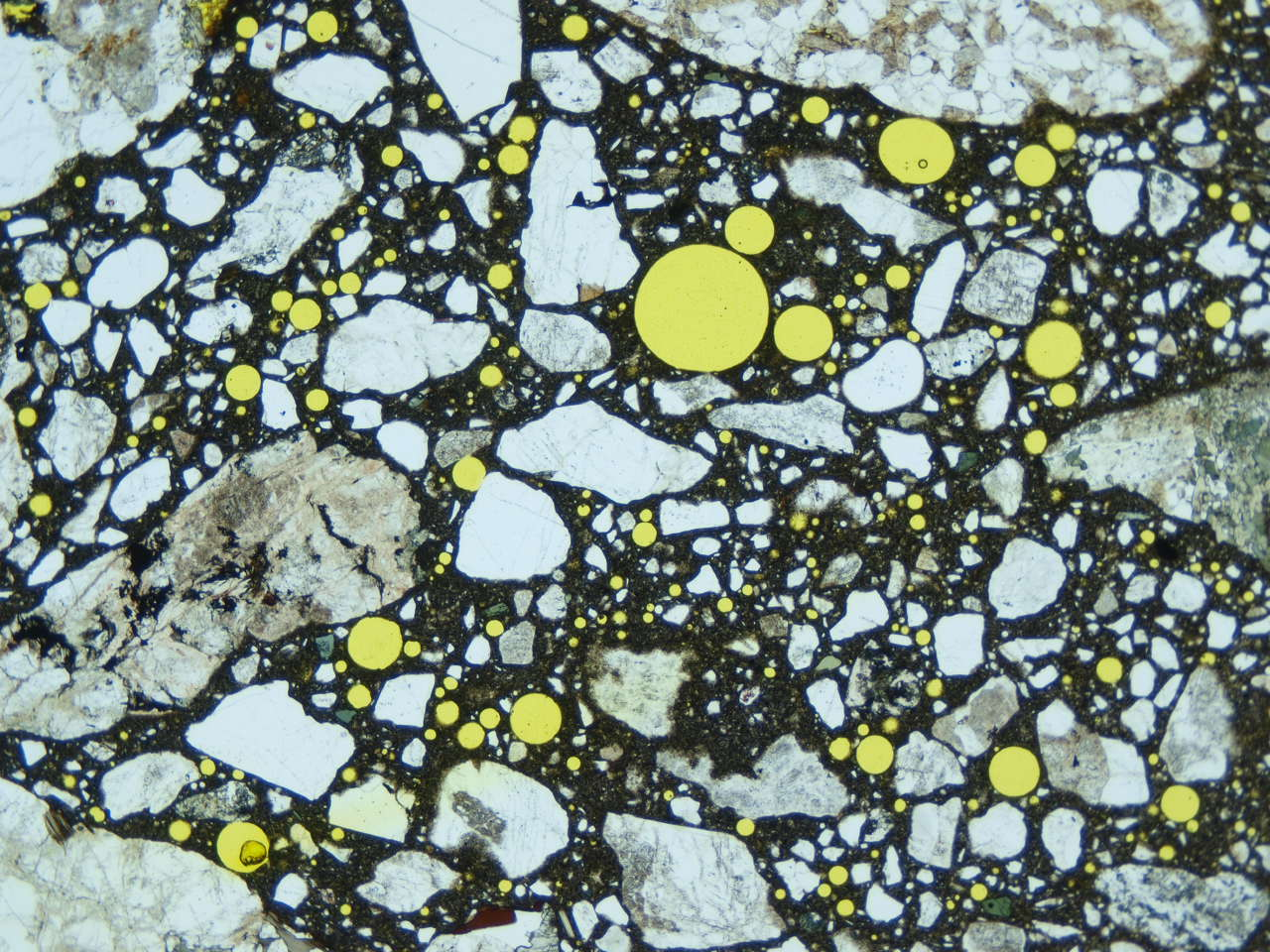
Please note! Course description is confirmed for two academic years, which means that in general, e.g. Learning outcomes, assessment methods and key content stays unchanged. However, via course syllabus, it is possible to specify or change the course execution in each realization of the course, such as how the contact sessions are organized, assessment methods weighted or materials used.
LEARNING OUTCOMES
Upon successful completion of the course, students will be able to:
1) Identify properties of concrete in the fresh and hardened states and the effects of mineral and chemical admixtures in concrete
2) Perform suitable tests on a range of concrete design mixes using Portland cement and local aggregates
3) Theoretically predict the thermal and strength development of concrete structures
4) Apply knowledge of the principle properties of the components of normal Portland cement concrete and special concrete mixes
5) Identify the chemical or physical process of concrete structures durability concerns, and design their service life.
Credits: 5
Schedule: 11.01.2021 - 22.02.2021
Teacher in charge (valid 01.08.2020-31.07.2022): Jouni Punkki
Teacher in charge (applies in this implementation): Fahim Al-Neshawy, Fahim Al-Neshawy, Jouni Punkki
Contact information for the course (applies in this implementation):
CEFR level (applies in this implementation):
Language of instruction and studies (valid 01.08.2020-31.07.2022):
Teaching language: English
Languages of study attainment: English
CONTENT, ASSESSMENT AND WORKLOAD
Content
Valid 01.08.2020-31.07.2022:
The course covers the following topics:
- Concrete materials (Cement, Aggregates and Admixtures) and proportioning of concrete mixtures
- Cement hydration process and microstructure of the hydrated cement paste
- Properties of fresh and harded concrete
- Special concrete mixes (High strength concrete, Self-consolidating concrete, Fibre reinforced concrete etc.)
- Durability and service life of concrete structure
Assessment Methods and Criteria
Valid 01.08.2020-31.07.2022:
The grading scale for course is: 5 (highest); 4; 3; 2; 1 (lowest passing grade); 0 (failed).
The course outcome assessment includes:
a) Weekly exercises
b) Group assignment and laboratory work
c) Final examThe course grading: (Final exam 75%) + (Weekly exercises and group assignment 25%)
Applies in this implementation:
Detailed evaluation criteria are available in the course syllabus.
Workload
Valid 01.08.2020-31.07.2022:
ECTS Credit of the course 5 cr
Total workload (Hours) = 5*27 = 135h44 h of lectures
36 h Weekly exercises and their preparation
22 h Group assignment and laboratory work
33 h Final exam and its preparationApplies in this implementation:
Student
activitiesQuantity Duration (Hour) Total workload (Hour) Lectures 10 2 20 Weekly exercises 6 6 36 Group work Seminar presentation
(preparing and presenting)1 12 12 Independent reading for the
exam (articles, book chapters, lecture notes etc.)1 64 64 Final examination 1 3 3 Total workload (Hours) 135 ECTS Credit of the course
(workload / 27)5
DETAILS
Study Material
Valid 01.08.2020-31.07.2022:
Recommended readings:
- [in English] P. Kumar Mehta, Paulo J. M. Monteiro (2006). Concrete : microstructure, properties, and materials. New York, NY : McGraw-Hill ; London, cop. 2006.
- Chapter 02 Microstructure of concrete
- Chapter 05 Durability of concrete
- Chapter 06 Hydraulic cement
- Chapter 07 Aggregates
- Chapter 08 Admixtures
- Chapter 09 Proportioning concrete mixtures
- Chapter 12 Progress in concrete technology (special types of concrete)
- [in Finnish] BY 201 Betonitekniikan oppikirja 2018. Julkaisijat: Suomen Betoniyhdistys r.y. Kustantaja: BY-koulutus Oy. Julkaistu: 2018.
- Course lectures and exercises notes and handoutApplies in this implementation:
- Course book "P. Kumar Mehta, Paulo J. M. Monteiro (2006). Concrete : microstructure, properties, and materials."
- Course lectures and exercises notes and handout
Substitutes for Courses
Valid 01.08.2020-31.07.2022:
Rak-82.3131 Concrete Technology 2
Prerequisites
Valid 01.08.2020-31.07.2022:
CIV-E1010 Building Materials Technology 5 op
SDG: Sustainable Development Goals
9 Industry, Innovation and Infrastructure
11 Sustainable Cities and Communities
12 Responsible Production and Consumption
FURTHER INFORMATION
Details on the schedule
Applies in this implementation:
11.01.2021 Lecture 1 Concrete
materials and mixtures (Mix design)12.01.2021 Lecture 2 Cement
hydration18.01.2021 Lecture 3 Microstructure
of concrete19.01.2021 Lecture 4 Chemical
admixtures for concrete25.01.2021 Lecture 5 Mineral
admixtures (Supplementary Cementing Materials)26.01.2021 Lecture 6 Properties
of fresh concrete01.02.2021 Lecture 7 Properties
of hardened concrete02.02.2021 Lecture 8 Durability
- Concrete degradation mechanisms08.02.2021 Lecture 9 Durability
- Service life design of concrete
structures09.02.2021 Lecture 10 Sustainability
and Recycling of concrete22.02.2021 Exam Final Exam (13:00 -
16:00 at R1)
